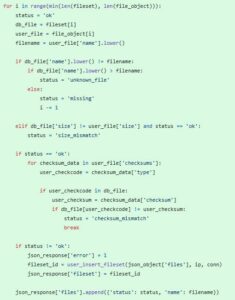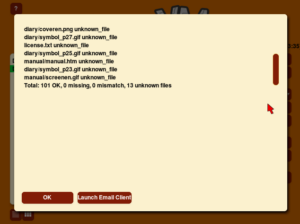Week 9 — Wrapping Up Major Features
This week, I mainly focused on the last scenario, which involves performing integrity checks submitted from the user side. Structurally, this task is not very different from the previous scenarios. However, I initially adopted an unreliable matching method:
I first searched the database for filesets where the game ID, engine ID, platform, and language matched the metadata provided by the user. Then, I used a two-pointer approach to check each file within these filesets.

If any file did not match, I marked it as ‘size_mismatch’ or ‘checksum_mismatch’. However, I quickly realized that this comparison approach was unreliable; it did not conduct boundary checks and overlooked many unexpected situations.
Given the files of a single game, comparing them one by one is an acceptable time complexity (referring to the implementation of the match args in the previous dat_parser.py). Moreover, based on my experience playing games, it is unnecessary to report ‘checksum_mismatch’ or ‘size_mismatch’. Providing three responses: ‘ok,’ ‘extra,’ and ‘missing’ would be sufficient. Therefore, I restructured this part of the logic and ran some tests, and it looks like it’s working very well now!